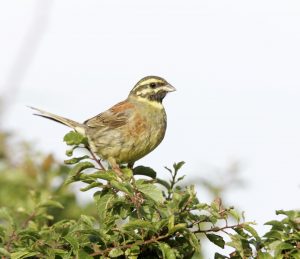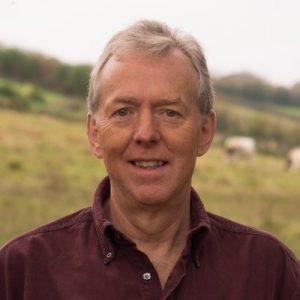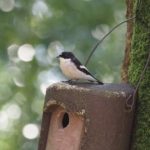Nocturnal Bird Migration
Many bird species migrate largely, or exclusively at night, while others engage in nocturnal activities such as display flights and movements to nocturnal foraging grounds. These activities, which probably go on every night over your garden while you sleep, are poorly understood. Simon will explore how audio recording and radar are starting to shed light on these behaviours.
A History of Greenham Common
Ian will tell us how Greenham Common, once a military base, was decommisioned and returned to heathland.
It is now a popular birdwatching destination and boasts an extensive heathland bird list from Dartford Warbler to Greenland Wheatear!
There are also one or two surprise species !
Please note that this meeting will be held at St Peter’s Church Hall, Church Road, Earley.
Saving Britain’s birds – challenges facing bird conservation
Kevin’s lifelong interest in wildlife has led to a deep involvement in nature conservation and land management in the UK and overseas. A member of the World Land Trust Council, in 2008, he helped Birdlife Bolivia set up a protected area for the critically-endangered Blue-throated Macaw and he remains a Friend of the Barba Azul Reserve. Since 2011, he has served on the Council of Devon Birds, most recently as Chair. Kevin lives on Dartmoor where he takes a keen interest in the conservation of the moor, especially for upland and woodland birds. He is currently Chairman of the RSPB Council at a key time in its fight against raptor persecution and its work to improve the lot a farmland birds. Listen to an in depth interview with Kevin.
He will talk about the birds of Dartmoor, especially those of the open moor and western oak woods and reveal some of the secret spots where they can be found. Following that he will talk about some key RSPB projects, highlighting the species recovery work for birds like Curlew, Turtle Dove and Cirl Bunting and some of the national and international issues that the conservation movement faces.
All are invited – there will be no charge for BOC and RSPB group members.



A.G.M. followed by a presentation of the BTO’s Wetland Bird Survey
The Club’s Annual General Meeting will be followed by a presentation of the Wetland Bird Survey (WeBS). The British Trust for Ornithology’s Neil Calbrade will tell us about some of the changes that we are seeing in the UK’s internationally important wintering populations of wetland birds.
Three thousand WeBS surveyors monitor the UK’s internationally important non-breeding waterbirds at 2,800 sites. Following a tradition begun in 1947, wetland sites are counted once per month, providing data for population and trends in abundance and distribution. Climate change, habitat loss and habitat creation are driving important changes to our wintering ducks, geese and swans and to wintering waders. WeBS provides key scientific underpinning for wetland conservation and a growing network of protected sites.
Bird disease
We are pleased to welcome Dr Dadam to hear about her interest in avian diseases.
Infectious diseases pose a threat to wildlife conservation and several parasites have been demonstrated as having impacts on birds at population level across the world
This talk covers the main diseases such as Trichomonosis and the resulting impact on our birdlife.
A Lane in E. Europe
Eastern Europe is an exciting place for wildlife photography. Birds are more numerous there than in the U.K. and the land is more accessible. Bulgaria, Romania, Hungary and Poland all feature in this talk which covers White-tailed Sea-eagles, Golden eagles, European jackals and a Wallcreeper site accessed from a cherry picker.
In the jungles of Sarawak/Borneo
Borneo is the third largest island in the world and the rainforest is one of the oldest in the world with an immense diversity of flora and fauna.
This wonderful talk will include insects, animals and amphibians as well as the many different bird species that the nature enthusiast could expect to see.
The talk is sychronised with birdsong/calls and wildlife sound recordings actually made on location.
Radar and Migration
Paul moved to Yorkshire several years ago after growing up in Berkshire. He was a member of the ROC as was and visited us a few years ago to give us a wonderful talk on Bird Strikes at airports and their attempted prevention. Now he works for APHA – the Animal and Plant Health Agency. He will talk this evening on the fascinating subject of studying flight movements with radar. He hopes to show some moving images of actual screens!
Hampshire’s Special Birds
Hampshire Ornithological Society’s Chair and County Bird Recorder, Keith is a contributing editor to Nature Travel Network. A Londoner by birth, and an active birdwatcher since he was 12, Keith now lives halfway between there and the south coast of England. A former Board Member of the Royal Society for the Protection of Birds, Keith is also Vice President of the British Trust for Ornithology, and Chairman of the African Bird Club. Having worked in the travel industry for 25 years, his views about travel trends are widely sought by the media – and he has made over 1,000 TV appearances – mainly in the UK, but also on CNN, ABC, CBS and NBC. He has visited nearly 100 countries and clocked up 7,200 bird species along the way. A keen supporter of the American Birding Association, he has also made over 15 birding trips to the USA and Canada.
Tonight, he will talk about Stone Curlew, Little Egret, Peregrine, Red Kite and Willow Tit among others. These are all species for which Hampshire is now important. All are still uncommon but some are declining.
Wildlife of the Llanelli Wetlands
Bea Walecki is a Student of Reading, she is currently undertaking an internship at WWT Llanelli Wetland Centre as a Reserve Warden.
Tonight we’ll find out more about this wetland reserve, its management and of course the birds that are found there.

